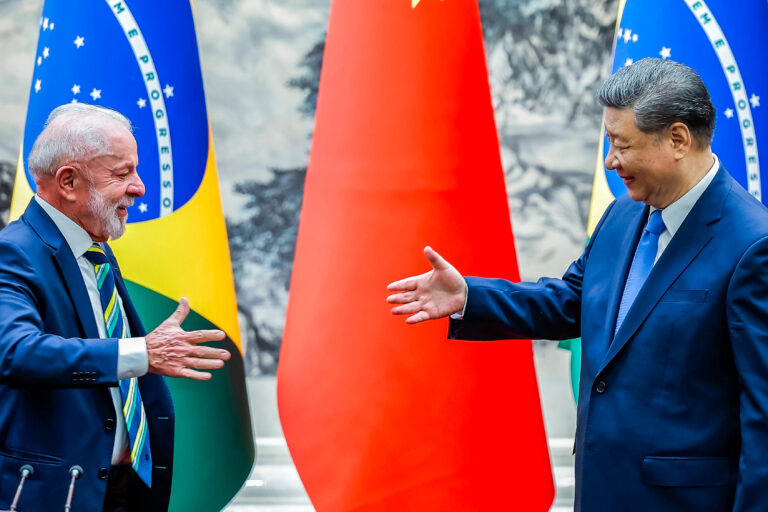Brazil is a country shaped by highways. The transportation model adopted by President Juscelino Kubitschek in the 1950s has been expanded by successive administrations across the political spectrum since then, involving substantial investments in road construction, maintenance and incentives for the automotive industry. This long-standing preference for cars, buses and trucks contributed to the decline and eventual scrapping of Brazil’s railway system. Experts say this philosophy helped increase logistics costs in Brazil, a country with continental proportions and long distances. Several officials have pledged to rebuild the railway system and lower shipping costs, but these promises faded as railroads proved expensive and often not lucrative for private investors. This explains why President Luiz Inácio Lula da Silva’s administration is so enthusiastic about the plan to build a 3,000-kilometer (1,864-mile) railway using Chinese technology and funding, connecting the Atlantic and the Pacific. This new megaproject is a central piece of Brazil’s infrastructure strategy to streamline the export of agricultural and mineral commodities to China via Pacific ports, cutting shipping times by up to 10 days compared with the current route across the Atlantic. Brazilian officials also view the railway as an opportunity to expand exports, promoting hundreds of other products in the Asian market. Ferrovia de Integração Oeste-Leste (Fiol 1) em Sussuarana/BA – (02/09/2021). Image courtesy of Vinícius Rosa/Governo Federal. In May, Brazilian and Chinese authorities, including Presidents Lula and Xi Jinping, discussed the proposed rail link connecting Brazil’s Ilhéus Port on the Atlantic coast to Peru’s new Pacific-facing Chancay Port,…This article was originally published on Mongabay
Search
Recent Research
Want your Blog Article featured on our website?
Research
Featured News
Explaining Katsina’s Massive Leap to 2nd Position in the 2025 Climate Governance Ranking
In 2024, during the first edition of the Subnational Climate Governance Performance Rating and Ranking,
COP30: Firm to connect institutions with international climate finance opportunities
SISTME, a climate change and biodiversity conservation consulting firm based in Argentina, has offered to
From resistance to planetary governance, Indigenous women redefine global climate action
While world leaders negotiate behind closed doors in the Blue Zone of COP30, Indigenous Women
Sahara Group Foundation launches 16th Sahara Go Recycling Hub to boost environmental sustainability, economic empowerment
Sahara Group Foundation, the corporate social impact arm of Sahara Group, has commissioned its 16th
Climate finance is the lifeblood of climate action – Simon Stiell at COP30
Remarks delivered by UN Climate Change Executive Secretary, Simon Stiell, at the third High-Level Ministerial
UNDP, REA, GEF commission Plateau solar mini-grid to power agricultural value chains, empower rural communities
The United Nations Development Programme (UNDP), in partnership with the Rural Electrification Agency (REA) and
COP30: Africa urges world leaders to turn pledges into action
Africa has called on the world leaders to turn their pledges into action regarding the
Thousands join global marches calling on govts at COP30 to deliver climate justice
An estimated 30,000 people marched through the Brazilian city of Belém on Saturday, November 15,


